It happens more often than we expect. A nice backpacking or camping adventure could turn suddenly into a desperate survival situation. Without a number of basic survival skills, coming on the other side victorious could be a dream.
These survival skills are not limited to preppers. Even ordinary people could find it difficult to make it out of a disaster without these survival skills. Imagine you are on a poorly traveled interstate express road and your car suddenly breaks down in the middle of nowhere. Would you know what to do?
This is what makes it vital for everyone to master a few survival skills. It could save your life because you can stay safe until help comes. Here is a descriptive list of 9 basic survival skills everyone should know how to do:
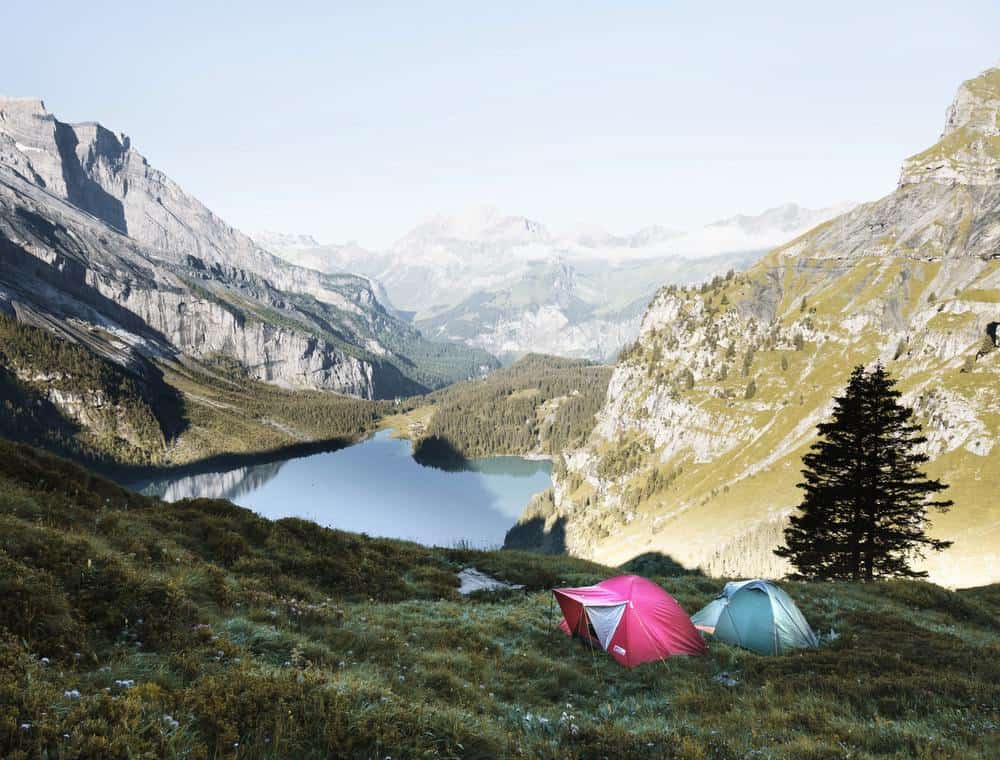
Learn These Basic Survival Skills
In today’s world, it is more important than ever to know the basics of survival. In order to do this, one must first learn a few basic survival skills. For example, you should know in order to survive in the wild is how to build a good personal or group shelter. Most people in survival situations die of hypothermia, which can be easily avoided with basic survival skills. Other survival techniques that you should know include:
1. Sending a Survival Signal
Even if you are perfect for survival, you will ultimately need someone to rescue you from your quagmire. It is important to know how to send out a survival signal so that rescuers can find you. You must also send it in a manner that rescuers will understand that it is a distress signal.
Traditionally, it has been in the form of three of anything. For instance, you can see an aircraft overhead. Send out a signal by starting a triangle of three fires. The pilot and passengers of the aircraft will immediately realize you are calling for help. The same goes for whistling. Do it three times. It is thus good to travel with a whistle. If you do not have a whistle, you can improvise one with an acorn.
2. Sourcing For and Purifying Water
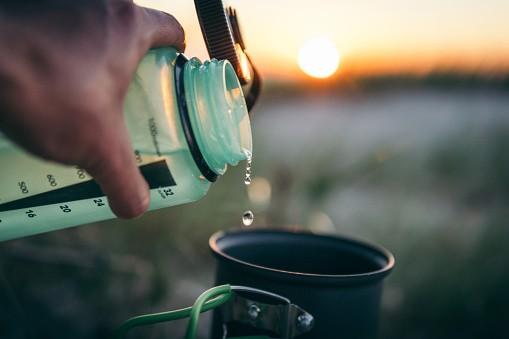
You cannot make it alive without water. Even if you are able to single rescuers, you might succumb to dehydration if you do not get drinking water. The situation is even worse if you find yourself stranded in a very hot place.
Sourcing for water is the first step. You can collect rainwater. But there are many other ways. Find them out by researching. Filter the water you obtain with a piece of cloth to remove the sediments. You can make a fire to boil the water to kill bacteria and other germs that could be in the water.
3. Starting and Tending To a Fire
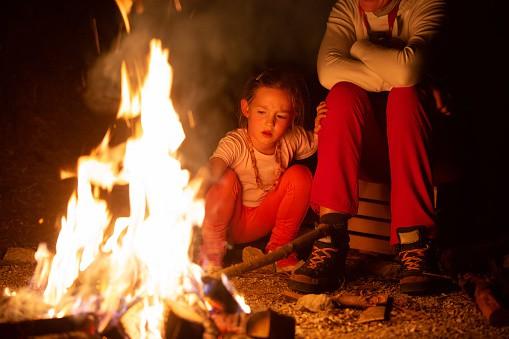
The two most dangerous conditions that could threaten your survival are dehydration and hypothermia. Besides learning how to find and purify water, you need to know how to start and tend to a fire. You must know how to start a fire without using lighters, Ferro rods, or matches.
The easiest way to go about it is by the use sticks. The commonest ways to start a fire using sticks are to Bow Drill, Hand Drill, and Fire Plow. You need to learn and hone these fire-starting skills early to be safe in the future. When it comes to tending to the fire, you need to find dry material for kindling and tinder.
4. Sourcing For Food
We have always heard the news of people who have survived in the wilderness for weeks, even a month without food. By the time they were found, they were barely able to function. We have also heard reports of persons who have managed to survive in the wilderness. By the time they were found, they were as strong as you could imagine.
Such people knew how to source food in the wilderness. The best source of food would be edible plants. This requires that you know which plants and herbs bear edible fruits. This is because certain plants can be very toxic. In rear cases, you can hunt or fish to find food. Only by eating will you have enough energy to perform the other survival skills.
5. Develop the Survival Mental Attitude
Many people may not realize that having a survival mentality is a good skill to learn. It is understandable if people panic and become wrestlers when a disaster strikes. Such a mentality could land you in trouble. You will be unable to make any rational decisions to increase your chances of survival.
You must learn to control your breathing and to stay calm. You also need to cultivate self-composure and self-confidence. In other words, you must believe in yourself that you have what it takes to survive. Only by being calm can you access the situation to make rational decisions. Speak to experienced survivors. Let them teach you how to develop a survival mental attitude.
6. How to Perform DIY First Aid?
Injury can lessen your chances of survival. Not always will you have someone with you to perform the First Aid on you? It is therefore important that you learn how to perform it on yourself also. The common injuries you must learn how to treat via basic First Aid include:
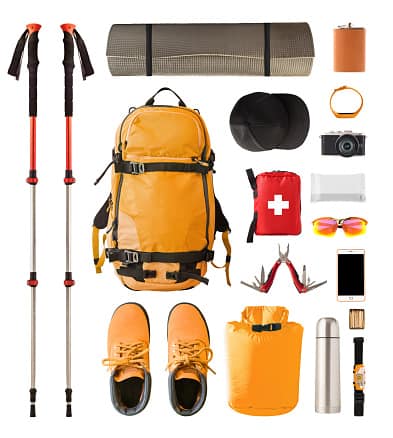
• Minor Cuts:
If associated with minimal bleeding, treat a minor cut by simply directing pressure to the area. Hold it at the spot with your thumb for a little while until the bleeding curtails.
• Low Degree Burns:
The first thing is to be careful not to experience a nasty, painful burn. In the case of an accident, treat it via four methods. You can cool it down with water, cover it with dressing, stay hydrated, or use a painkiller such as ibuprofen.
• Sprains:
Also known as athletic injuries, sprains can happen as a result of the poor terrains you might have to walk on. There are a few things in the environment you may use to treat sprains. You can use the rice method. The method includes rest, ice/cool, compress, and elevate. You can use ice to cool it down. You can compress it by wrapping it in a t-shirt sleeve. Elevation will improve blood flow and therefore help with pain relief.
• Dislocations and Fractures:
You should not allow a dislocation to last long before returning the bones to their socket. In case of a dislocated shoulder joint, simply roll on the ground a couple of times against a hard surface. In case of fractures, use a couple of sticks and shoelaces to create some sort of a splint. Simply stabilize the fractured bone with the sticks. Tie them together with shoelaces to hold the brace in place.
You should learn the use of survival kits and first aid kit as you’ll need it.
7. Building a Shelter
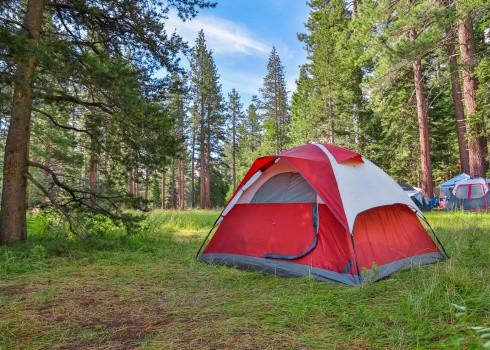
Surviving in the wild means you are away from the comfort of your home. Thus you will be exposed to elements as well as wild animals that might want to harm you. If you did not carry a tent in your survival kit, then you will need to build one in cold weather. You can use materials such as standing trees, tree branches, leaves as well as vegetation.
The best place to site your shelter should be flat, well-drained, dry, and close to (not right next to) a body of water. Stay away from valleys and paths on the course-way of surface runoff. Build a shelter that is well-insulated. This will protect human body from hypothermia due to extremely low temperatures and act as a snow shelter.
8. Develop Navigation Skills
Always Carry A Compass In Your Survival Kit
Sometimes rescue may not come even after sending a survival signal. In that case, you may need to find your way home. As long as you know the direction of any civilization, you can find help. You will need to develop some navigation skills. You must know how to navigate without GPS, compass or map.
Learn how to find direction by using sunlight. Push a long stick into the ground in an open area. Put a mark where the shadow of the tip of the stick is cast. After a few hours, check the place of the shadow. Draw a line from the tip of the stick’s shadow. Since the sun always moves from east to west. The direction of the shadow should give you an idea of where east and west are. You can then deduce where north and south are.
9. Know How to Tie Knots
Tying a knot is a skill you must learn. There is a lot of tying when it comes to surviving. Besides, there are numerous types of knots to tie. Each has its own application. You have to learn and hone the knot tying skills. You will need the skill of repairing something, building something, and holding something up.
10. Outdoor Cooking
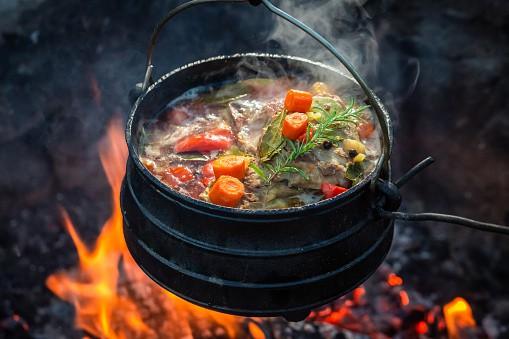
If you find yourself stranded in nature with nothing to eat, knowing how to cook food that you catch or gather will make a world of difference.
Start a fire using whatever materials are available to you. In an emergency situation, never use lighter fluid as this is dangerous and wasteful. Instead, try fire building from scratch using friction techniques.
Matches can be used as long as they haven’t been exposed to extreme conditions such as rain or snow. Ensure that your matches are safe by storing them securely within a waterproof container or ziplock bag for easy access. If the weather is dry enough, finding dry tinder and twigs should not be too difficult. A hand drill works well on sunny days since the heat can be focused on the tinder, but it still may take some time.
If you do not have any matches, a very simple method of creating fire involves using steel wool and batteries to create sparks. Make sure that both pieces are non-conductive by stripping the insulation off of the wires exposing the metal beneath. Then simply connect them together to transfer energy from one to another until they light up with flames.
Once this happens, quickly move the flame onto your kindling pile and gently blow on it to help it catch fire. This is only really possible if you have spare batteries, steel wool, and dry tinder available.
If you do not have anything to use to start a fire, and it is cloudy or raining, the only option may be to build a fire reflector. With this method, concentrate your efforts on finding dry fuel and place it towards the back of the reflector so that when the sun rises again, it will give off warmth.
11. Self-Defense
Knowing how to fight is essential if you find yourself in an emergency situation such as being stranded in nature or involved in a disaster. You should ideally aim to learn martial arts which can help you develop strength, endurance, discipline, and focus while learning how to defend yourself at the same time.
Even if you plan on avoiding conflict and hiding until rescue arrives, knowing some basic moves (and the willpower to use them) could be what gets you out of a dangerous situation.
12. Shooting a Gun
Shooting is also another skill that everyone should have knowledge of, especially if you are planning on heading out into the wilds. Firearms are ideal for hunting and protection against wildlife, but they can also come in handy during an emergency situation as well.
As long as you have some basic knowledge about firearms, learning how to shoot is not hard or time-consuming. And it’s essential for wilderness survival.
Understanding your firearm thoroughly before heading into nature will allow you to adapt quickly in an emergency situation that may arise while you’re away from civilization. Being familiar with your weapon will help save time when it comes to using it properly, especially if someone’s safety is at risk.
Conclusion
There are tens or even hundreds of survival skills you need in the wilderness. You can also master them. However, these 9 basic survival skills are the ones every one person needs to know how to do. We say ‘everyone’ because disasters do not choose who strikes. Besides, you cannot choose to suffer the wrath of a disaster. So, everyone needs to master these skills early enough.
